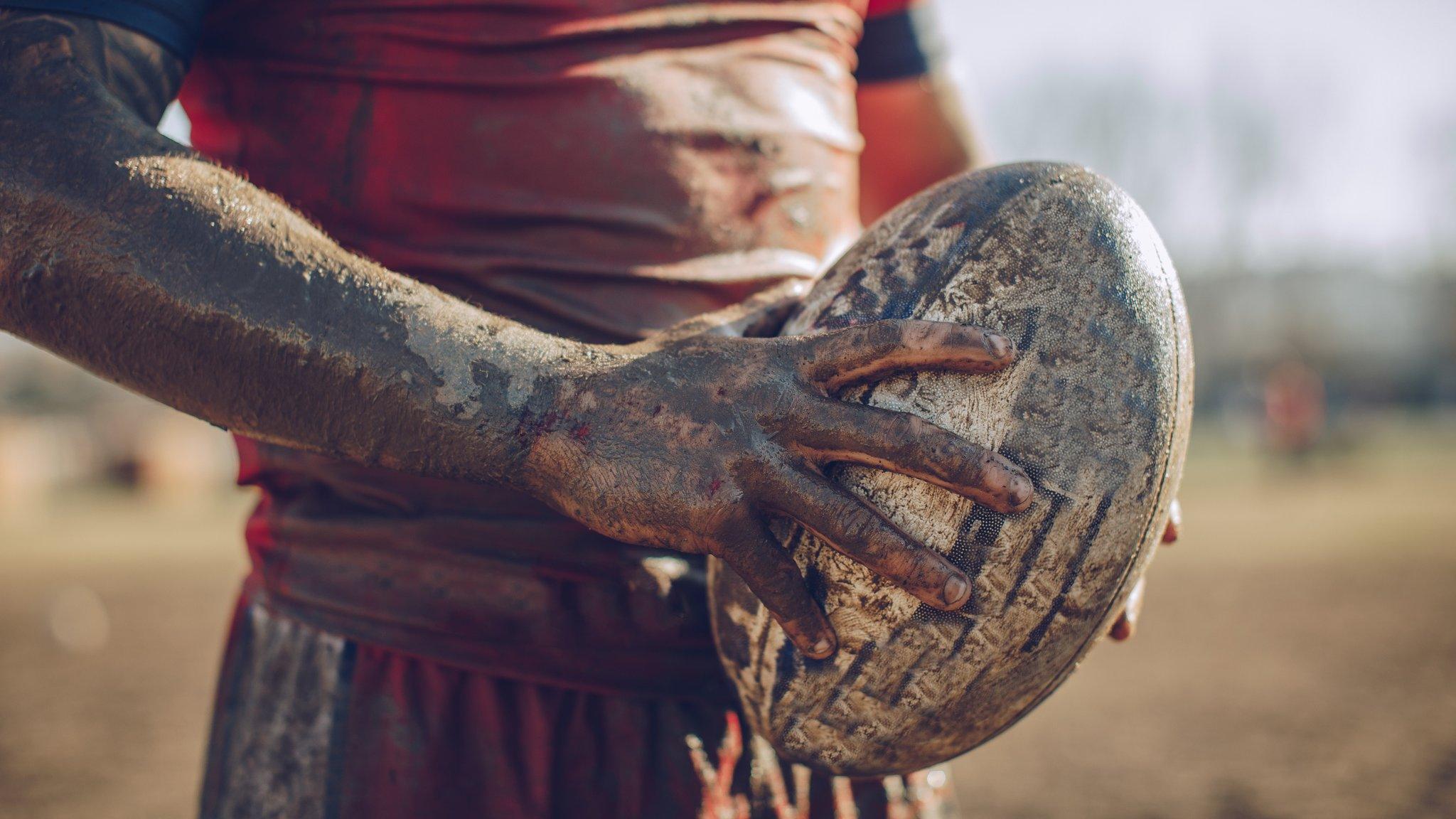Rugby Football League: Former players to sue RFL over brain damage
- Published

A legal claim against the Rugby Football League for negligence is set to be launched this week, lawyers acting for 75 former players have said.
They say the RFL did not "take reasonable action to protect players from permanent brain injury caused by repetitive concussive and sub-concussive blows".
The announcement comes before the Rugby League World Cup starts on 15 October.
A similar action was launched by rugby union players in the summer.
The RFL says "it has been desperately sad" to hear of the players' issues, and stressed it takes player welfare "extremely seriously".
It added that it "continues to improve and develop its approach" to protecting players' physical health and provides support to former players.
Former Great Britain scrum-half Bobbie Goulding, along with 10 other former rugby league players, have previously claimed the sport has left them with brain damage.
Goulding has been diagnosed with early-onset dementia and said there was not enough protection for players who had suffered head injuries.
Former Wales internationals Mickii Edwards and Lenny Woodard, and ex-Scotland internationals Jason Roach and Ryan MacDonald, are also part of the group taking action.
The legal firm representing the professional and semi-professional rugby league players say they will serve a letter of claim against the RFL this week.
What are the players claiming?
Lawyers for the players said many "now suffer from various irreversible neurological impairments, including dementia, CTE (chronic traumatic encephalopathy), post-concussion syndrome, epilepsy, Parkinson's disease and motor neurone disease".
They have made 53 allegations against the RFL, including a failure to "ensure that a properly qualified individual was in charge of the treatment of head injuries within the sport and the systems, protocols and enforcement that related to the same".
They also claim the organisation did not "respond to changes in the intensity and physicality of the game of rugby league over the course of the 1980s and 90s through the adaptation of rules, protocols, guidance, officiating or at all".
"We are seeing the same worrying symptoms in numerous cases across both codes of rugby," said Richard Boardman of Rylands Legal.
"These symptoms include chronic depression, aggression, significant memory loss, incontinence, drug and alcohol addiction, and, in some cases, suicide attempts.
"This claim isn't just about financial compensation, it is also about making the game safer and ensuring current and former players get tested so that if they are suffering a brain injury, they can get the clinical help they need.
"The players we represent love the game. We aim to challenge the current perceptions of the governing bodies, to reach a point where they accept the connection between repetitive blows to the head and permanent neurological injury and to take steps to protect players and support those who are injured."
What does the RFL say?
The RFL said it "takes player safety and welfare extremely seriously, and it has been desperately sad to hear of any players' difficulties" in a statement to BBC Sport.
"Rugby League is a contact sport and, while there is an element of risk to playing any sport, player welfare is always of paramount importance," it added.
"As a result of scientific knowledge, the sport of rugby league continues to improve and develop its approach to concussion, head injury assessment, education, management and prevention across the whole game.
"We will continue to use medical evidence and research to reinforce and enhance our approach.
"Support to former professional players is always available from rugby league's charity partner RL Cares."
Dark spots 'concerning'
Doctors treating former England and St Helens prop James Graham are concerned by "dark spots" which have shown up on a recent brain scan and are believed to be the result of repetitive head trauma.
The 37-year-old, who says he endured more than 100 concussions and 18,000 collisions during his career, has undergone a series of tests since his retirement.
"The MRI scan of the brain shows some dark spots on there, which are of concern to my doctor and my neurologist," he said.
"And then also there's an area of the brain that the volume is in the bottom three percentile of where it should be, which they believe is likely linked to repetitive head trauma."
Graham is not part of the group taking legal action but has previously stated his intention to donate his brain for scientific research when he dies.
He said at this stage he had not been given a definitive diagnosis based on the MRI scan, and that he will be subjected to regular monitoring.